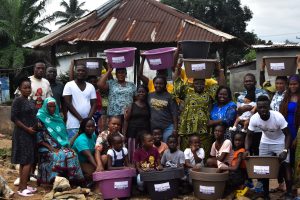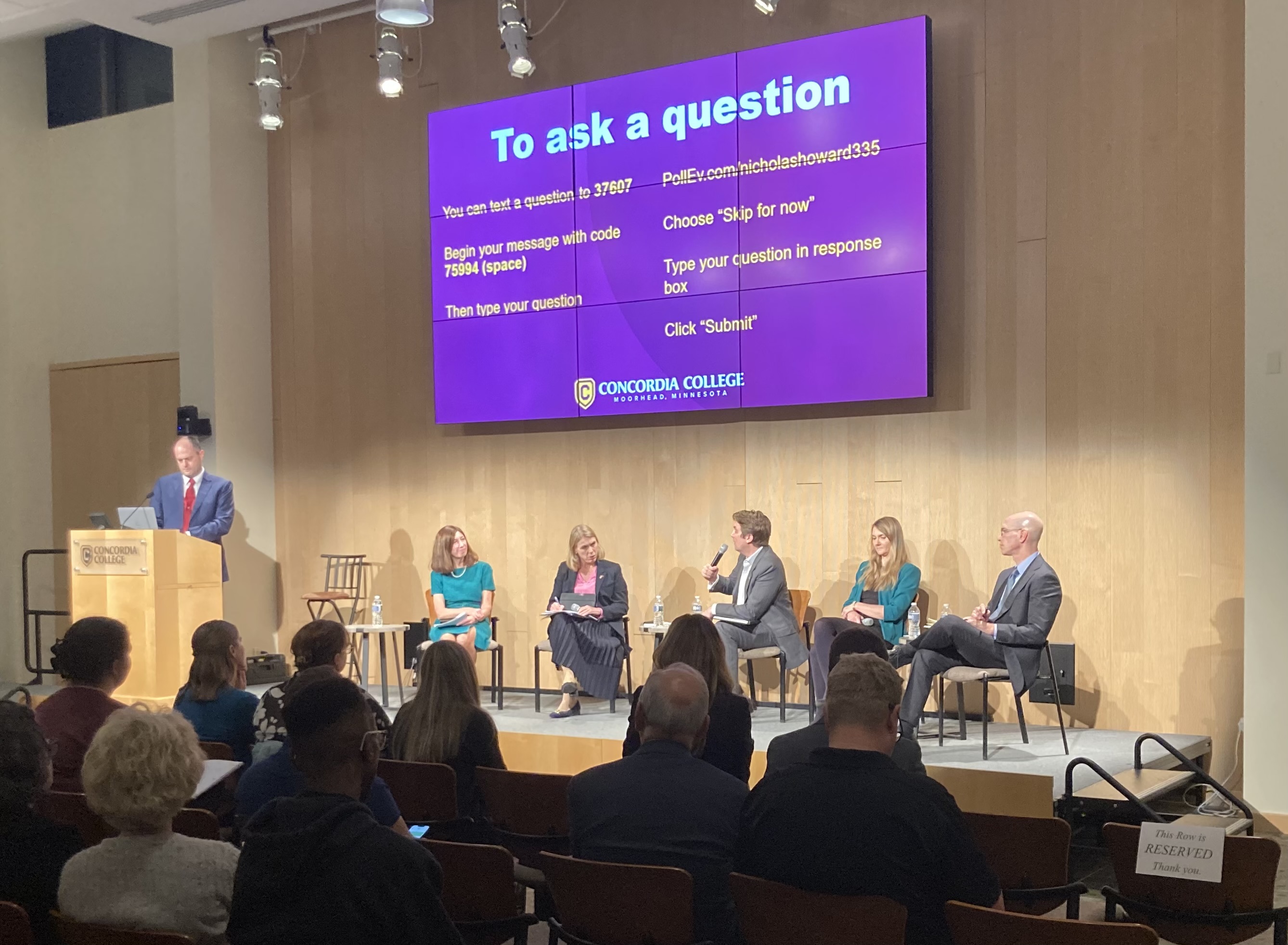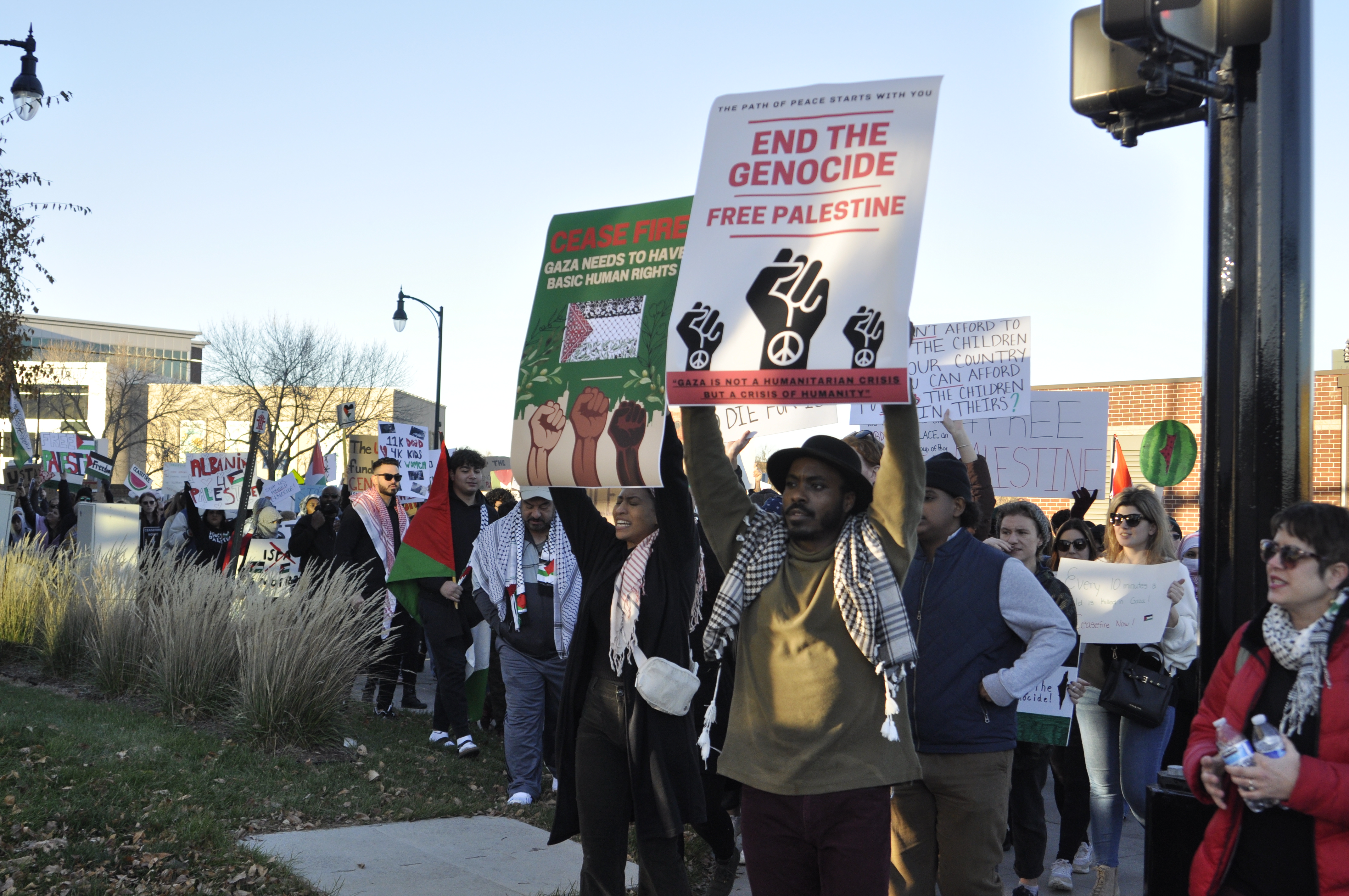A class of 20 students gathered at the King Intercultural center Oct. 1 to have a discussion about genocide with the author of “Nowhere: A Story of Exile.”
“People don’t think these things happen now, but they do because the world is paying attention to something else,” said author Anna Astvatsaturian Turcotte.
Turcotte was a clerk at the International Criminal Court, which is involved in prosecuting individuals for genocide. She is the president of the Maine chapter of the Society for Orphaned Armenian Relief.
“It was nice to get questions answered by the author. It would have been nice to have another discussion with her, though,” said Freshman Ariel Johnson. She is part of Amy Watkin’s inquiry seminar, Beyond Genocide: Help/Hope.
Watkin said she decided to teach this book because it pertains to the class, and she knew Turcotte would be visiting other schools in the area.
“I took the class because when I was looking through the list, I thought that it was something I could really utilize. It’s interesting and relevant to the world,” said Freshman Marah Evans. “It’s relevant all the time because it’s always happening.”
The class covers multiple genocides, including the Holocaust, Armenian genocide and Rwandan genocide.
“The Holocaust has been the one thing that has fascinated me most through history because I can’t believe it happened,” Johnson said.
Turcotte wrote her book at the age of fourteen, basing it off her diaries and thoughts as she looked back at how her family and, more importantly, how she had been affected by the genocide that happened years before she was born.
“Refugees don’t write about this; they are too traumatized. Many have said ‘thank you for speaking for us’ after the book was released,” Turcotte said.
Turcotte’s high school teacher and college professors helped her get the book published because she did not think she would be successful in the process.
“It’s my diary, it seemed so mundane to me,” Turcotte said.
When Turcotte became a refugee and moved with her parents to the United States, she and her family were so thankful they were safe, they did not care where they ended up. Turcotte said it took a long time to find people who understood and that the whole experience was traumatizing.
“As a refugee, you always feel out of place,” Turcotte explained.
Even though it ended many years ago, the Armenian genocide is still not recognized as a genocide by the Turkish government.
“The only people talking about the Armenian genocide are the Armenians,” Turcotte said.
According to Watkin, some governments refuse to label genocide as such. This can further the tendency of humans to be dismissive of the issue.
“Genocide affects everyone,” Watkin said. “It’s so easy to dismiss as something that happens far away, long ago, happens amongst people so far from here. We forget that we are certainly not only vulnerable in some ways, but complicit.”









Be First to Comment